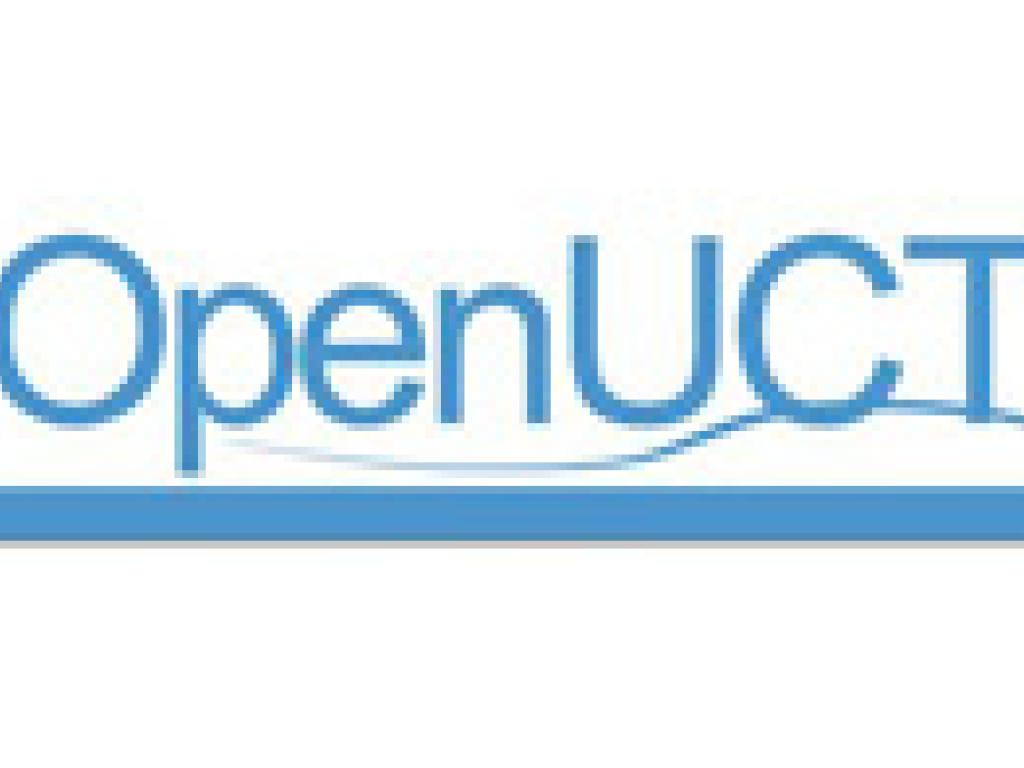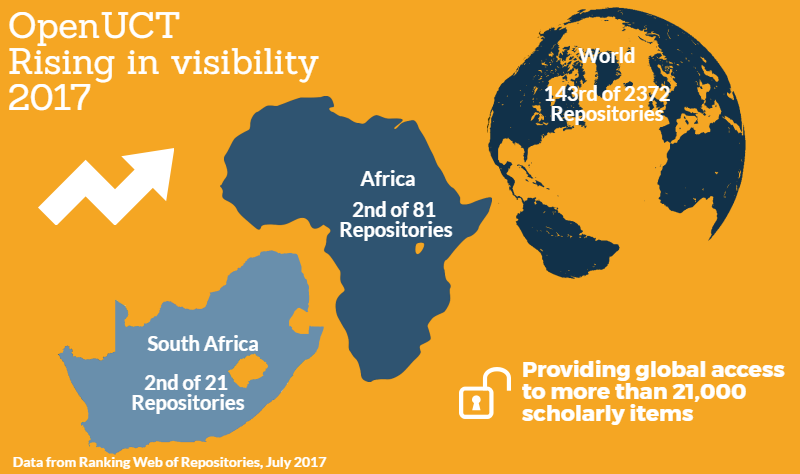OpenUCT Rising in Visibility

OpenUCT has performed extremely well in the most recent Ranking Web of Repositories published by the Cybermetrics Lab in Spain. OpenUCT is ranked second of 21 repositories in South Africa, and also takes second place of the 80 repositories in Africa. Globally, OpenUCT is ranked 143 out of 2,372 repositories. The aim of the Ranking Web of Repositories is not to grade repositories, but rather to promote Open Access initiatives and global access to academic knowledge.
Access to scholarly output provides a crucial ingredient for the creation of new knowledge. It is well known that Africa remains at the bottom of the global tables in the production of scientific information. The continent is caught in the vicious cycle of low research productivity because of its very limited access to global knowledge, thus remaining a net consumer of knowledge rather than becoming a meaningful contributor to the knowledge economy. Access to scholarly output is the key to breaking this cycle of knowledge famine.
By having an open institutional repository, UCT provides the platform for global access to scholarship produced at the University. The repository houses over 21,000 items: journal articles, teaching resources, book chapters, theses, dissertations, working papers and research reports. Since OpenUCT’s launch in July 2014, most of these scholarly resources have been fully available to everyone with an internet connection.
UCT’s progressive Open Access Policy seeks to increase the discoverability and visibility of scholarly output; contribute academic resources to social and economic development; and maximize the visibility of UCT scholarship. This latest ranking shows that OpenUCT has made the Open Access Policy come alive by providing the world with access UCT’s scholarship through increased visibility and discoverability.
The ripple effects of this expanded access to knowledge are expected to be greater use of African scholarship, leading to a significant increase in Africa’s research production for knowledge societies.

